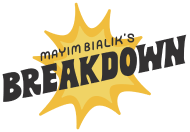Let’s face it, no discussion of mental health is complete without discussing exercise. We have all heard that exercise is important for maintaining a healthy body, but what exactly is the mechanism by which it accomplishes this? Well today we are going to break down some of the physiological effects of exercise!
When you engage in physical activity a cascade of events occur in your body. This begins with an increase in your metabolism. As your muscles and nerves communicate with each other to accomplish each exercise they burn through a lot of extra energy. This increased metabolism leads to the release of Interleukin-6, a cellular messenger that can act to inhibit portions of the inflammatory response in the body (Xing et al., 1998; Harvard Health Publishing, 2007; Peterson & Pederson, 2005; Mello Portugal, 2013). As you may remember from some of our previous articles, recent evidence suggests that excessive inflammation play a role in many psychiatric disorders (Yuan et al., 2019).
Our bodies were designed to engage in physical activity. While we may have transitioned from hunting and gathering to a more sedentary lifestyle, our bodies are still configured to live as the former. By integrating consistent exercise (especially aerobic) into your daily routine, you can work to keep both your mind and body healthy.








